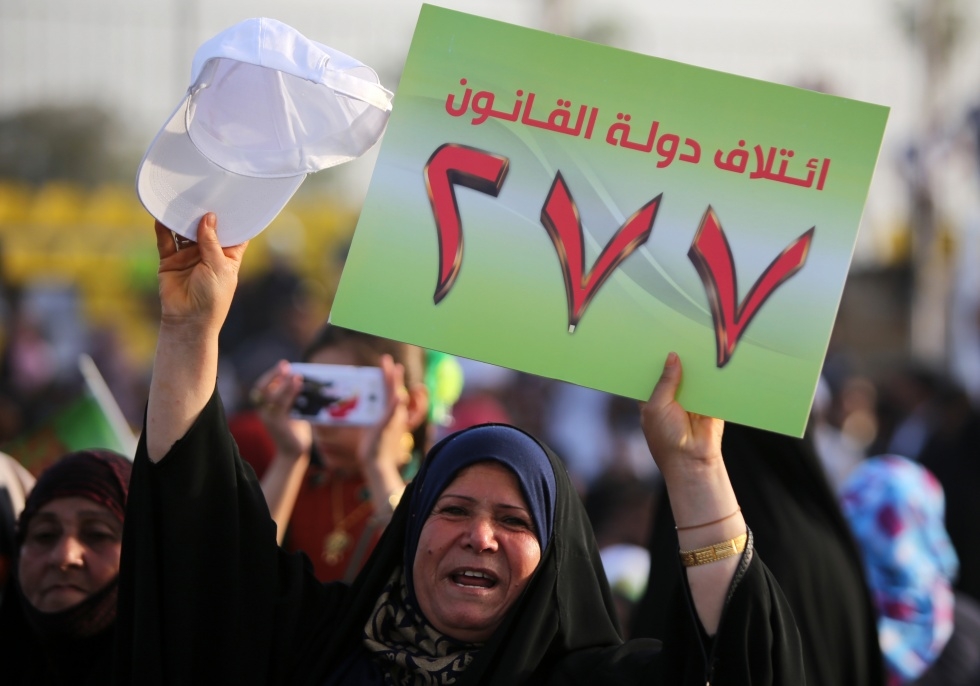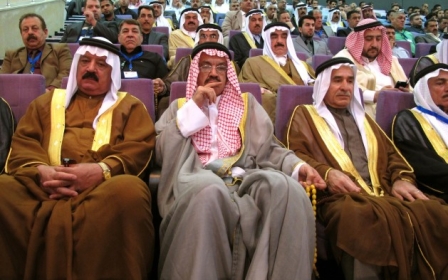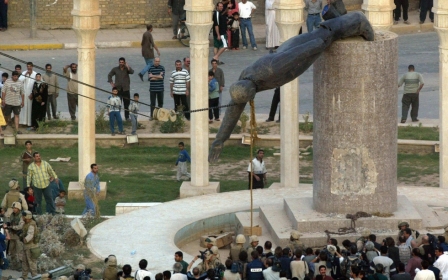Regional strife hands Iran, Gulf states role in Iraq vote

When Iraqis go to the polls in Wednesday's general election, regional strife could make neighbouring Iran, former occupier the US, Gulf nations and Syria silent voters as well, analysts believe.
The election is the first since American troops withdrew in late 2011, and since then US influence has waned while Iran has acquired more clout inside its Arab neighbour.
The conflict in Syria between President Bashar al-Assad and mostly Sunni rebels that erupted in March 2011 has also spilled over the border, and could influence the election outcome.
"Elections in Iraq are taking place amid a raging regional conflict, with Syria as its main source, and Iraq is not far from this conflict," said Issam al-Faili, professor of political history at Baghdad's Mustansiriyah University.
"Iraq was historically an arena for the conflict between the great powers, and today, once again, it seems Iraq is the stage for similar disputes that have made Iran, the US, the Gulf states and also the conflict in Syria voters."
Tehran and Washington both played a key role in the re-election of Prime Minister Nuri al-Maliki in 2010 at the head of a national unity coalition.
But the American military withdrawal in late 2011 allowed Iran to build its political influence over its neighbour, making it the biggest foreign player in the country it fought a brutal war against from 1980-1988.
"The Iranian influence is certainly greater because they have direct control of some parties" in Iraq, said Michael Knights, a fellow at the Washington Institute for Near East Policy.
Rise in attacks nationwide
But he said that the US can exert its influence over Baghdad through its ability to "refuse to supply" weapons.
Iraqi security forces are currently battling a concerted rise in attacks nationwide, and Washington is still Baghdad's main arms supplier.
The rise of Iranian influence has also embroiled Iraq in the dispute between Tehran and the mostly Sunni Gulf monarchies over the conflict in Syria.
Syria's bloody civil war has divided Iraqi politicians, with Baghdad's Shiite-led government publicly adopting neutrality.
Iraq has called for a political solution to Syria's conflict and rejected arming rebels battling Assad's regime, a stance supported by most Gulf monarchies.
Maliki launched a scathing attack on Saudi Arabia and Qatar in Iraq in March, accusing them of declaring war on Iraq and saying that Riyadh was "supporting terrorism" in the region and the world.
Most of Iraq's Shiite majority frets about backing the largely Sunni rebels fighting the Syrian regime, dominated by the Shiite offshoot Alawite sect, in case they win and later back Iraqi Sunnis.
From 2006-2008, Iraq was ravaged by a bloody sectarian civil war between Shiites and Sunnis, who had dominated Iraq until the fall of Saddam Hussein's regime in 2003.
"Many foreign powers have agents in Iraq," Faili said. "These agents owe their loyalty to the states that support them, principally the Gulf states, which will try in the elections and their aftermath to push for a government loyal to them, as opposed to Iran's insistence on a government that supports its regional policies."
Clash over regional influence
"Iran's national security will not allow a government that does not support (Tehran), and its regional competitors that might find the US on their side will push for the opposite," Falli said.
Despite this clash over regional influence, analysts and diplomats say Iran strongly hopes that Iraq's election succeeds.
A successful election could help Iraq establish cohesion and unity among its Shiites so Tehran can devote itself fully to the conflict in Syria.
"Iran has been playing power games (in Iraq) for a long time," said one Western diplomat, speaking on condition of anonymity.
"Their priority in Iraq right now is to keep it as quiet as they can because they've got their hands full with Syria" and are too busy organising "Shiite militias sending Iraqis to fight along with (Lebanon's) Hezbollah in Syria".
"If Iraq might look like it might become too successful, maybe the Iranians will stir things up a bit, maybe, but it's not in danger of looking too successful."
Middle East Eye propose une couverture et une analyse indépendantes et incomparables du Moyen-Orient, de l’Afrique du Nord et d’autres régions du monde. Pour en savoir plus sur la reprise de ce contenu et les frais qui s’appliquent, veuillez remplir ce formulaire [en anglais]. Pour en savoir plus sur MEE, cliquez ici [en anglais].




